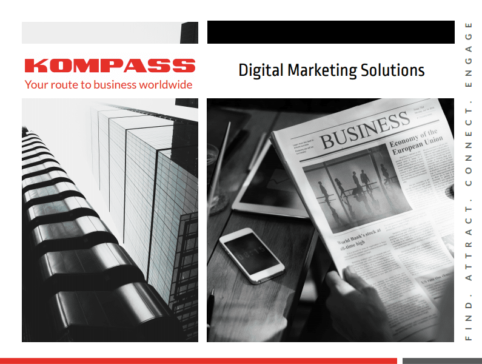28 October 2019
How to build a successful online advertising strategy – If you’ve got a spare minute, take a look at the website Internet Live Stats…it’s somewhat mesmerising to see those numbers spinning as users browse, search and post on the internet – 8,000 tweets, 76,000 google searches & 2.8m emails sent every second – yes every second!
But for anyone looking to market their company, it begs the question – how on earth will anyone find us in amongst all that noise and traffic?
With more than 4 million searches performed online every minute, the challenge for all companies is to be found quickly and easily by the right audience and… as a result win new business. So when it comes to online advertising, the potential benefits are huge – your online target market is out there and growing, but how do you take advantage and make sure you are found by the right visitors?
If you consider the 4 stages within the buying cycle – Awareness, Research, Negotiation and Purchase….the likely starting point will be through a search engine like Google. According to Net Market Share they continue to dominate in the battle of providers, averaging a net share of more than 86% on tablets, 83% on mobiles & 76% on desktops. Although others such as Baidu, Yahoo and Bing hold a smaller, but still significant audience of around 5 – 12% market share, so shouldn’t be ignored.
There has been a shift in buying behaviour
When buying B2B products, buyers are invariably more risk averse than when buying in a B2C environment. Generally because the investment sums are much higher and the potential implications of a bad decision can be so much greater – the negative impact of a wrong decision weighing heavily on those within the purchasing group.
According to research undertaken by Demand Gen (2017 B2B Buyer’s Survey Report), this aversion to risk has seen a shift in B2B buying behaviour. Buyers are now seeking opinions and input from others in the form or peer reviews and ratings – typical input from other users might include ease of use, ROI and deployment time. According to their survey 67% of B2B buyers agreed that they relied more on peer recommendations when making a final purchasing decision. So any online advertising strategy also needs to take this into account when looking to achieve the best possible results.
How to improve your traffic ranking organically
When trying to generate traffic and revenue from search engines like Google, you really have two options – try to rank in the free organic results or pay to appear via PPC (pay-per click) – you might like to take a look at PPC v SEO – the perfect pairing which outlines some key tips on helping you do both.

Using SEO & content – A good start would be to use SEO to make sure your website is well indexed and correctly optimised. In addition creating a good content marketing strategy will also significantly help to improve your organic ranking and increase your traffic.
Create relevant landing pages – A strong and clearly relevant landing page will keep visitors engaged and build their confidence in your message. Make sure that you tailor the content and call-to action on your landing page to the needs of the visitor – remember that this will depend on their place in the buying cycle.
Capture details where possible – Is there a compelling reason for visitors to your landing page to give you their details? Make sure that you offer enough information to give them an understanding of your product/company before asking for their contact information. Don’t force visitors to provide their details too early – with gated content, between 3 & 5 is the ideal number of fields on web registration or download forms.
When it comes to paid online advertising, the numerous strategies to learn can be somewhat intimidating for many, the competition is fierce and mistakes can be expensive.
You need to target your audience effectively
First things first, before placing online advertising you need to define your audience and understand their online activities. Consider what sites they use for business purposes, do they use social media such as Twitter, LinkedIn or Facebook? If so, consider using the relevant paid-for advertising on these sites. Choosing the best positions for your advertising, by setting targeting criteria such as age, career, interests or industry will help to guarantee maximum effect.
Another strategy to help you reach your target audience is to list your business with online directories and global B2B marketplaces such as Kompass. With data across 70 countries and over 55,000 activity headings to choose from, Kompass attracts more than 7.5m users every month helping buyers and suppliers search & connect with each other.
Upgrading your company profile with the Kompass Booster solution gives you a fully optimised company profile, keywords and translations in 26 languages, helping to broaden your online brand visibility, showcase your products & services and drive relevant enquiries from potential customers.

There is a lot to think about when it comes to online advertising!
Ad Types – search ads show up when your target audience is looking for what you offer – display ads appear where your most likely prospects are searching – native ads which appear on publisher sites often blend in so well they appear not to be ads at all – remarketing ads target visitors to your website with customised messages elsewhere on the web.
Cost – with PPC (pay-per-click) ads, you pay when someone clicks, so you will need to set a budget for this. With search ads, you need to identify the right search terms and decide how much to bid on each – tools such as the Google AdWords Keyword Planner can help you do this.
Competition – depending on your target market and the industry you are in, the competition for keywords can make them prohibitively expensive. So take the time when researching your keywords to educate yourself in the vagaries of long tail keywords. These can make all the difference to your ad words strategy, especially if you cannot afford to compete with your competitors when it comes to budget. At the end of the day whilst you want to attract visitors they need to be the right type of visitors.
Campaign Management – with online advertising you should be able to monitor and track campaign results in order to measure your return on investment. Seeing which platform performs best, when leads convert into sales, will help you identify which ads work best for your demographic. Even if your digital advertising is mainly a visibility and branding exercise there is no excuse for not measuring results. Simple and free analytics packages such as Google Analytics can provide you with all of the necessary metrics.
Google AdSense – As a website owner you can monetize your website by hosting Google ads – they get the biggest cut and you get a small percentage…but Google AdSense is not for everyone or every website. Generally speaking it tends to be most successful on sites that sell products & services, blog or forum sites or those that offer free online tools. There are also a number of things to consider, such as using the right keywords, choosing the most effective AdSense advertisements and of course monitoring your results regularly.
What are the pitfalls of online advertising?
Ad fatigue, choosing the wrong keywords, neglecting a bidding cap, targeting ineffectively or leaving a campaign running when you thought it was off, you can blow your marketing budget without converting a single lead into a sale. Online advertising can be challenging to administer for both the newbie & experienced marketer, not least due to the ever changing Google SERP (Search Engine Result Pages) Features, helpfully tracked in this post by Moz.

Where can you get help with your online advertising?
Managing successful PPC campaigns is a complex task that requires expert knowledge, but whilst there is endless advice out there, this wealth of information can be somewhat overwhelming!
You also need to spending your marketing budget wisely. However one cost-effective option could be our Kompass PPC campaign management tool.
By leveraging close relationships with Google, Bing and Yahoo and using the latest in PPC technology, we can manage the whole process for you. Not only can we build you effective keyword strategies that will guarantee 1000 visits to your company website. What really sets our client ad campaigns apart is our ability to reach the right audience and understanding where they are likely to be positioned when they see your online advertising.
Want to find out more? Contact Us today or give us a call on 0800 0185 882
To summarise, multi-channel sales and marketing campaigns are the most successful and best practice implementation, whichever lead generation techniques you choose, is really important. We hope this brief insight into what is involved, when using online advertising, will help you make the most of the opportunities this gives you to generate leads & win new customers.
Disclaimer: Please note that this blog only contains general information and insights about legal matters. The information is not advice, and should not be treated as such. Kompass.com









Comentarios
No Comments